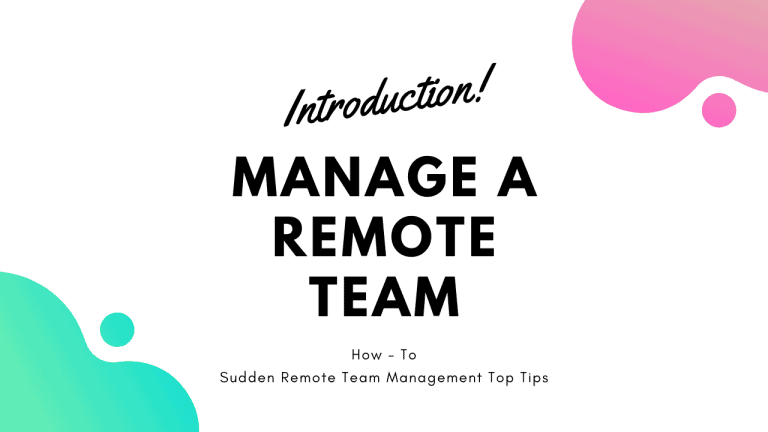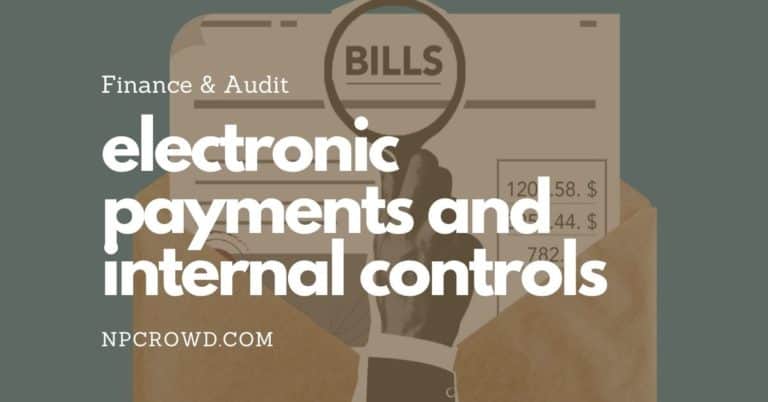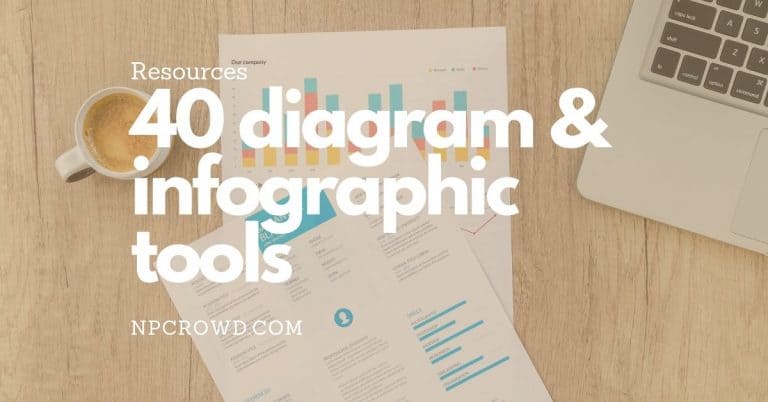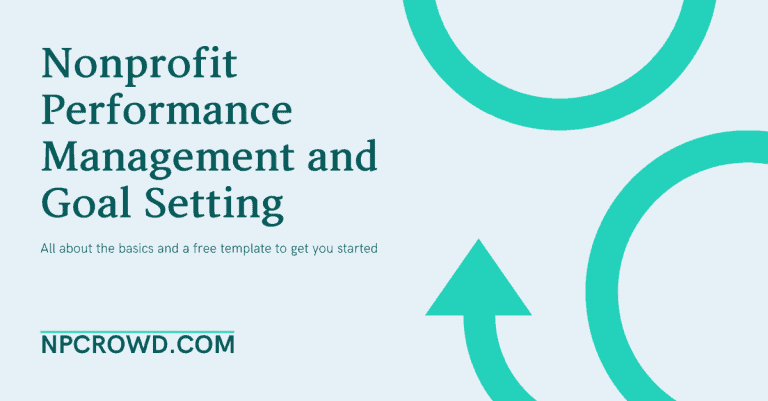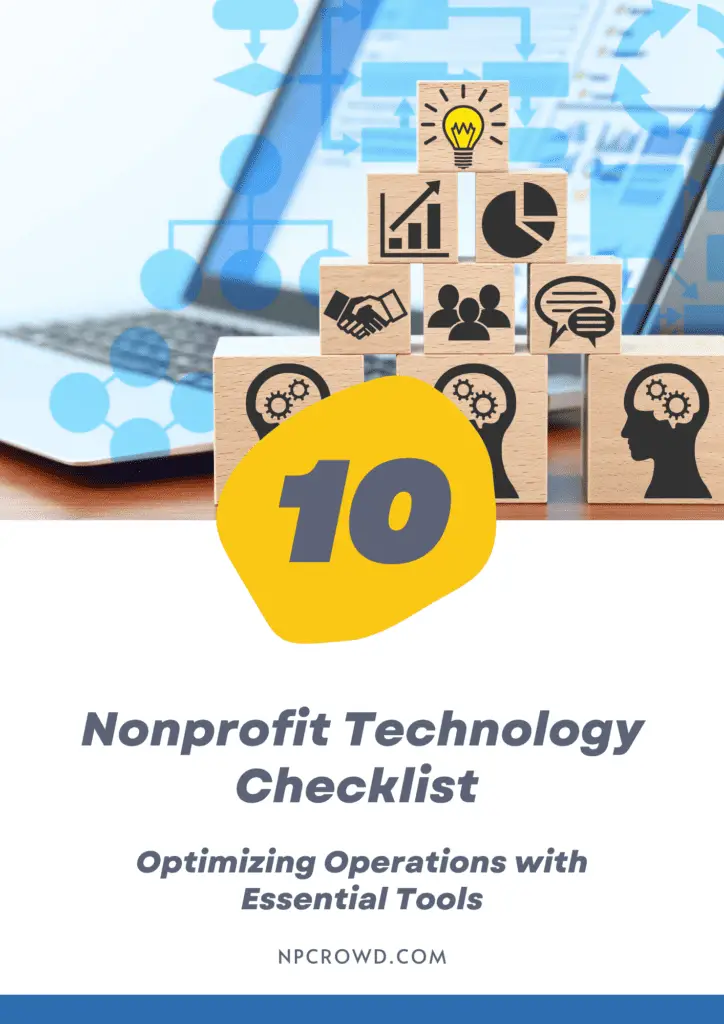How to Successfully Implement the Salesforce Nonprofit Program Management
Disclaimer: This post may contain affiliate links. These links, if used and purchases made, we may earn a small commission. These affiliate programs do not impact the recommendations we make or the resources we refer you to. Our focus is on providing you the best resources for your nonprofit journey.
Implementing the Salesforce Nonprofit Program Management can greatly benefit nonprofit organizations by enhancing donor engagement, program management, and reporting. This article will provide an overview of the Salesforce Nonprofit Program Management, its key features, the benefits of implementation, and the steps to successfully implement it. The key takeaways from this article are:Key Takeaways
- Customizable Constituent Relationship Management (CRM) is a key feature of the Salesforce Nonprofit Program Management.
- Donor Management and Fundraising Tools help nonprofits effectively manage and engage with their donors.
- Volunteer Management and Engagement features facilitate efficient volunteer management.
- Grant and Fund Management capabilities enable nonprofits to effectively manage and track grants and funds.
- Implementing the Salesforce Nonprofit Program Management streamlines data management, improves donor engagement, enhances grant and fund management, and enables efficient volunteer management.
Understanding the Salesforce Nonprofit Program Management

What is the Salesforce Nonprofit Program Management?
Salesforce for Nonprofits, often referred to as the Nonprofit Success Pack (NPSP), is a specialized version of the Salesforce CRM platform. It’s a comprehensive, cloud-based solution designed to help nonprofits manage their operations more effectively and advance their mission-driven work.
The key features of the NPSP include:
- Donor and volunteer management: Keep detailed records of donors and volunteers, track their interactions, and engage with them effectively.
- Customizable constituent relationship management (CRM): Tailor the CRM to meet the specific needs of your nonprofit organization.
- Grant and fund management: Streamline the process of managing grants and funds, from application to reporting.
- Fundraising tools: Utilize tools and features to plan, execute, and track fundraising campaigns.
Implementing the Salesforce Nonprofit Program Management can provide nonprofits with a centralized platform to manage their operations and engage with donors, volunteers, and other stakeholders. By leveraging the power of Salesforce, nonprofits can enhance their efficiency, improve data management, and ultimately make a greater impact in their communities.
Why should nonprofits consider implementing the Salesforce Nonprofit Program Management?
When it comes to nonprofit management, harnessing the power of cutting-edge tools is paramount, and Salesforce emerges as the beacon of efficiency. Designed exclusively for nonprofit organizations seeking comprehensive solutions, Salesforce for nonprofits offers a strategic approach to enhance operations, donor management, and overall organizational effectiveness. As a trusted leader in cloud-based CRM, Salesforce empowers nonprofits to streamline processes, cultivate meaningful relationships, and drive their mission forward.
Implementing the Salesforce Nonprofit Program Management brings numerous benefits:
- Streamlined Data Management: With Salesforce, nonprofits can centralize their data, making it easier to track and analyze information about donors, volunteers, and programs. This allows organizations to make data-driven decisions and improve their overall efficiency.
- Improved Donor Engagement: Salesforce provides tools for managing donor relationships, tracking interactions, and personalizing communication. Nonprofits can use these features to engage donors more effectively, build stronger connections, and increase fundraising success.
- Enhanced Grant and Fund Management: Salesforce offers capabilities for managing grants and funds, including tracking applications, monitoring program outcomes, and generating reports. This helps nonprofits effectively manage their funding sources and demonstrate the impact of their work to stakeholders.
- Efficient Volunteer Management: With Salesforce, nonprofits can streamline volunteer management processes, including recruitment, scheduling, and tracking volunteer hours. This allows organizations to better engage volunteers and maximize their impact.
By implementing the Salesforce Nonprofit Program Management, nonprofits can leverage the power of technology to improve their operations, strengthen relationships, and achieve their mission more effectively.
Key Features of the Salesforce Nonprofit Program Management

Customizable Constituent Relationship Management (CRM)
Customizable Constituent Relationship Management (CRM) is a key feature of the Salesforce Nonprofit Program Management. With this feature, nonprofits have the flexibility to tailor their CRM system to meet their specific needs and goals. Whether it’s customizing fields, creating unique workflows, or designing personalized dashboards, Salesforce allows nonprofits to create a CRM solution that aligns with their organizational requirements.
One important aspect of customizable CRM is the ability to track and manage constituent data effectively. Nonprofits can store and organize information about donors, volunteers, program participants, and other stakeholders in a centralized database. This enables them to have a comprehensive view of their constituents and better understand their needs and preferences.
In addition, Salesforce provides powerful reporting and analytics capabilities, allowing nonprofits to gain insights from their CRM data. They can generate reports and dashboards to track fundraising efforts, measure donor engagement, and evaluate program outcomes. These insights help nonprofits make data-driven decisions and improve their overall performance.
To make the most of customizable CRM, nonprofits can follow these steps:
- Assess organizational needs: Understand the specific requirements and goals of your nonprofit to determine the customization options needed.
- Plan and customize: Work with Salesforce experts or consultants to design and configure the CRM system according to your organization’s needs.
- Train and educate users: Provide training and resources to staff members to ensure they can effectively use and benefit from the customized CRM.
- Continuously evaluate and optimize: Regularly review and refine your CRM system to adapt to changing needs and maximize its impact.
By leveraging the customizable CRM feature of the Salesforce Nonprofit Program Management, nonprofits can create a tailored solution that empowers them to effectively manage their relationships with constituents and drive their mission forward.
Donor Management and Fundraising Tools
Donor Management and Fundraising Tools are essential components of the Salesforce Nonprofit Program Management. With these tools, nonprofits can keep detailed records of donors, track their giving history, and segment them for more targeted outreach. It allows organizations to create and manage fundraising campaigns, process donations securely, and evaluate the success of these efforts. Additionally, nonprofits can monitor program outcomes, track beneficiary interactions, and demonstrate the impact of their work to stakeholders. The Salesforce Nonprofit Program Management also provides the ability to generate custom reports and dashboards to gain insights into donor behavior, program performance, and operational efficiency.
Implementing these tools can greatly enhance a nonprofit’s ability to effectively engage with donors, raise funds, and measure the impact of their programs. By leveraging the power of Salesforce, nonprofits can streamline their donor management and fundraising processes, resulting in improved efficiency and better outcomes for their mission-driven work.
Volunteer Management and Engagement
Volunteer management is a crucial aspect of any nonprofit organization. It allows you to efficiently and easily track volunteer engagement, engagement with major donors, program participants, or any other series of assignments. By implementing the Salesforce Nonprofit Program Management, you can streamline your volunteer management processes and ensure that your volunteers are effectively engaged.
One way to enhance volunteer management is by using the customizable Constituent Relationship Management (CRM) feature of Salesforce. This allows you to keep detailed records of volunteers, track their activities and contributions, and segment them for more targeted outreach.
In addition, the Salesforce Nonprofit Program Management provides tools for creating and managing fundraising campaigns. This enables you to not only engage volunteers but also leverage their support to raise funds for your organization’s initiatives.
To further optimize your volunteer management, consider utilizing the grant and fund management feature of Salesforce. This allows you to track the impact of volunteer efforts on grant-funded projects and effectively manage the funds allocated to these initiatives.
Remember, volunteer management is not just about tracking hours and assignments. It’s about building relationships and creating meaningful engagement opportunities for your volunteers. With the Salesforce Nonprofit Program Management, you can take your volunteer management to the next level and make a greater impact in your community.
Grant and Fund Management
Grant and Fund Management is a crucial aspect of nonprofit organizations. It involves the effective distribution and tracking of funds and grants to support various programs and initiatives. With the Salesforce Nonprofit Program Management, nonprofits can streamline their grant and fund management processes, ensuring transparency and accountability.
One important feature of the Salesforce Nonprofit Program Management is its ability to generate custom reports and dashboards. This allows organizations to gain insights into donor behavior, program performance, and operational efficiency. By analyzing this data, nonprofits can make informed decisions and optimize their grant and fund management strategies.
In addition, the Salesforce Nonprofit Program Management provides tools for donor and volunteer management. Nonprofits can keep detailed records of donors, track their giving history, and segment them for more targeted outreach. This helps in building strong relationships with donors and increasing fundraising efforts.
To further enhance the grant and fund management process, nonprofits can integrate third-party applications using the Business Process API. This feature allows for matching and creating donor records, storing external payment data, and linking campaigns and designations. It simplifies the process and ensures accurate and efficient management of funds.
In summary, the Salesforce Nonprofit Program Management offers nonprofits a comprehensive solution for effective grant and fund management. With its customizable reports, donor and volunteer management tools, and integration capabilities, nonprofits can efficiently manage their funds and make a greater impact in their communities.
Benefits of Implementing the Salesforce Nonprofit Program Management

Streamlined Data Management
Salesforce streamlines the chaos of disparate information sources, replacing sticky notes, spreadsheets, and fragmented digital systems with a centralized repository. A single source of truth empowers your staff by providing a comprehensive view of contacts, appointments, programs, services, donations, events, and resources. This unity facilitates better collaboration and fosters stronger relationships among team members. With all data consolidated, organizations can harness the power of analytics. Track fundraising against monthly goals, generate program reports for funders, and gain valuable insights that propel your mission forward. Salesforce enables you to identify operational efficiencies, allowing for smarter distribution of work and simplifying tasks such as board meeting preparation. The system’s usability ensures that insights are accessible and actionable.
Improved Donor Engagement
By leveraging the platform’s analytical capabilities, organizations can gain a deeper understanding of donor behavior, preferences, and trends. This insight-driven approach allows nonprofits to optimize their fundraising strategies, cultivate stronger donor relationships, and ultimately grow their income.
Nonprofit Cloud empowers organizations to know and expand their community through targeted marketing and personalized engagement. By leveraging the platform’s capabilities, nonprofits can create personalized experiences that resonate with supporters, fostering community growth and strengthening connections with their audience.
To further enhance donor engagement, Salesforce for Nonprofits offers a range of features and tools:
- Data Intelligence: By harnessing the potential of data intelligence and insights, nonprofits can gain valuable information about their donors, enabling them to tailor their fundraising efforts and communication strategies.
- Targeted Marketing: Nonprofits can use the platform’s capabilities to segment their donor base and create personalized marketing campaigns that resonate with different donor groups.
- Personalized Engagement: With Salesforce for Nonprofits, organizations can create personalized experiences for their donors, such as sending personalized thank-you messages, updates on impact, and invitations to events.
By implementing these strategies and utilizing the features provided by Salesforce for Nonprofits, organizations can significantly improve their donor engagement and ultimately increase their fundraising success.
Enhanced Grant and Fund Management
Enhanced Grant and Fund Management is a crucial aspect of the Salesforce Nonprofit Program Management. With this feature, nonprofits can effectively manage their grantmaking lifecycle and streamline their fund management processes.
One important tool provided by Salesforce for nonprofits is the Nonprofit Cloud for Grantmaking. This advanced extension incorporates everything from Nonprofit Cloud and offers specialized tools specifically designed for grantmakers. It allows organizations to build relationships and invest in a better future by efficiently distributing funds or in-kind grants.
To further enhance grant and fund management, Salesforce for nonprofits provides comprehensive features and unparalleled integration. This ensures that organizations have a centralized hub for data and insights, enabling them to streamline their operations and make informed decisions.
In addition, Salesforce for nonprofits offers reporting capabilities that allow organizations to generate custom reports and dashboards. These reports provide insights into donor behavior, program performance, and operational efficiency, helping nonprofits track the impact of their work and demonstrate it to stakeholders.
With Enhanced Grant and Fund Management, nonprofits can effectively manage their grants and funds, ensuring that resources are allocated efficiently and transparently.
Efficient Volunteer Management
Efficient volunteer management is crucial for nonprofit organizations to effectively engage and mobilize their volunteers. With the Salesforce Nonprofit Program Management, nonprofits can keep detailed records of volunteers, track their involvement and contributions, and segment them for more targeted outreach. This allows organizations to better understand their volunteers’ interests and skills, and match them with appropriate opportunities.
To ensure efficient volunteer management, nonprofits can utilize the customizable features of the Salesforce platform. They can create volunteer schedules, track volunteer hours, and communicate with volunteers through the platform. This streamlines the volunteer management process and improves communication and coordination.
Additionally, the Salesforce Nonprofit Program Management provides reporting capabilities that allow organizations to generate custom reports and dashboards to gain insights into volunteer engagement and performance. This data can help nonprofits evaluate the effectiveness of their volunteer programs and make informed decisions to optimize their impact.
In summary, the Salesforce Nonprofit Program Management offers powerful tools for efficient volunteer management, enabling nonprofits to effectively engage and leverage the skills and dedication of their volunteers.
Steps to Successfully Implement the Salesforce Nonprofit Program Management

Assessing Organizational Needs
In addition to filling out this survey, conduct an internal readiness assessment that explores your existing processes, data infrastructure, and organizational goals. Key factors to consider include: The alignment of Salesforce’s features with your nonprofit’s mission and objectives. The availability of dedicated staff or consultants with Salesforce expertise. The current and future state of your budget. The willingness of staff and stakeholders to adapt to new technology. Additionally, it’s crucial to gauge whether the organization has a clear understanding of its data management needs and a strategy for utilizing Salesforce’s capabilities to enhance donor engagement, program management, and reporting. Successful implementation involves understanding the unique requirements of your organization and ensuring that Salesforce aligns with your goals and objectives. This assessment process will provide valuable insights into your organization’s needs and help guide the customization and configuration of Salesforce to meet those needs.
Planning and Customization
Planning and customization are crucial steps in successfully implementing the Salesforce Nonprofit Program Management. During the planning phase, it is important to align Salesforce features with specific business goals and processes. This ensures that the system is tailored to fit the unique requirements of the organization. Customization allows for the creation of custom fields, page layouts, and workflows that enhance the user experience.
Additionally, data management and integration play a vital role in the implementation process. It is essential to ensure that the data within Salesforce is clean, organized, and integrated for practical use. This can be achieved through data cleansing, standardization, deduplication, and validation processes.
User training and adoption are also key factors in the successful implementation of the Salesforce Nonprofit Program Management. Investing in comprehensive training programs ensures that users are proficient in using the system and maximizes user adoption. Regular evaluation and adaptation should be carried out to make necessary adjustments and improvements to the functionality and user experience.
To avoid common mistakes in CRM implementation, it is important to consider the following:
- Understand business needs and align Salesforce features accordingly
- Customize and personalize Salesforce to fit specific requirements
- Ensure clean and integrated data through effective data management and integration
- Invest in comprehensive user training programs
- Regularly evaluate and adapt the implementation for continuous improvement.
Remember, careful planning and customization are the foundation for a successful Salesforce Nonprofit Program Management implementation.
Data Migration and Integration
Data migration and integration is a crucial step in implementing the Salesforce Nonprofit Program Management. It involves transferring existing data from your old database to the new system. This process ensures that all your valuable data is seamlessly migrated and integrated into the Salesforce platform.
During the data migration and integration phase, it’s important to conduct quality assurance testing to ensure that everything is working smoothly. This includes checking the functionality of modifications, integrations, and apps. Your team should also conduct their own tests to ensure that the system is working as expected and aligns with your existing processes.
To maintain data quality and integrity, it’s essential to create a data cleansing plan. This plan should include data standardization, deduplication, and validation processes. Automation tools can be leveraged to streamline these processes and ensure data accuracy.
Additionally, it’s crucial to determine which sources of data need to be migrated and which ones can be left behind. Your implementation partner can assist you in making these decisions if you’re unsure where to start.
Remember, the data migration and integration process requires the involvement of staff members who interact with the data. Their input and feedback are valuable in ensuring a successful migration.
Tip: Conduct thorough testing and involve your team in the data migration and integration process to ensure a smooth transition and maintain data integrity.
Training and Adoption
Training and adoption are crucial aspects of successfully implementing the Salesforce Nonprofit Program Management. It is important to invest in comprehensive training programs to ensure user adoption and proficiency. By providing users with the necessary knowledge and skills, they will be able to effectively utilize the program management tools and maximize their potential.
One effective approach is to align Salesforce features with specific business goals and processes. This customization and personalization can tailor Salesforce to fit unique business requirements, including custom fields, page layouts, and workflows.
To avoid common mistakes in CRM implementation, it is essential to avoid underestimating training needs. Providing adequate training and support is key to ensuring successful adoption. Additionally, resisting over-customization is important to prevent complications and hinder future updates.
In summary, training and adoption play a vital role in the successful implementation of the Salesforce Nonprofit Program Management. By investing in comprehensive training programs and aligning Salesforce with business goals, nonprofits can effectively utilize the program management tools and achieve their objectives.
Frequently Asked Questions
What is the Salesforce Nonprofit Program Management?
The Salesforce Nonprofit Program Management, also known as the Nonprofit Success Pack (NPSP), is a specialized version of the Salesforce CRM platform designed to help nonprofits manage their operations more effectively and advance their mission-driven work.
Why should nonprofits consider implementing the Salesforce Nonprofit Program Management?
Nonprofits should consider implementing the Salesforce Nonprofit Program Management because it offers customizable constituent relationship management (CRM), donor management and fundraising tools, volunteer management and engagement, and grant and fund management features that can streamline their data management, improve donor engagement, enhance grant and fund management, and make volunteer management more efficient.
What are the key features of the Salesforce Nonprofit Program Management?
The key features of the Salesforce Nonprofit Program Management include customizable constituent relationship management (CRM), donor management and fundraising tools, volunteer management and engagement, and grant and fund management.
How can the Salesforce Nonprofit Program Management streamline data management?
The Salesforce Nonprofit Program Management provides a customizable constituent relationship management (CRM) system that allows nonprofits to centralize and manage their data more efficiently, making it easier to track and analyze donor information, program outcomes, and operational efficiency.
How does the Salesforce Nonprofit Program Management improve donor engagement?
The Salesforce Nonprofit Program Management offers donor management and fundraising tools that enable nonprofits to track and engage with their donors more effectively. It allows nonprofits to store detailed donor records, track donor interactions, and generate custom reports and dashboards to gain insights into donor behavior.
What are the benefits of implementing the Salesforce Nonprofit Program Management?
The benefits of implementing the Salesforce Nonprofit Program Management include streamlined data management, improved donor engagement, enhanced grant and fund management, and efficient volunteer management.


